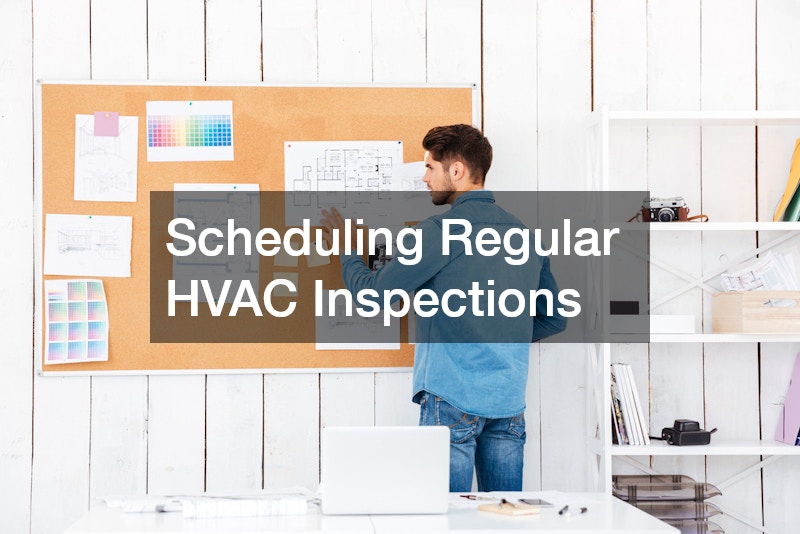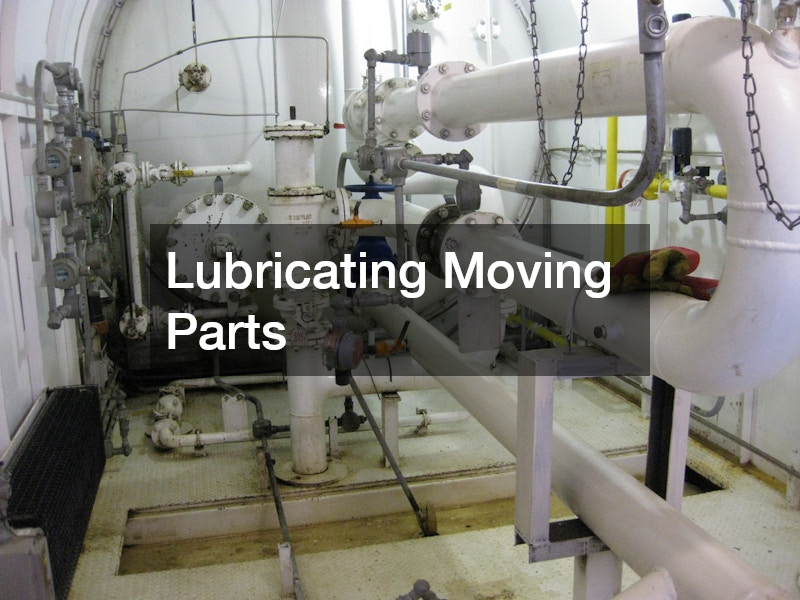
Beginning Your Home HVAC Evaluation
Maintaining your home’s HVAC system is crucial to ensuring a comfortable, energy-efficient living environment year-round. With the right care, your heating and cooling systems can operate smoothly, prevent sudden breakdowns, and even reduce utility bills. Regular maintenance keeps each component in top condition, extending the lifespan of your system while improving its efficiency. Learning expert tips for HVAC maintenance empowers homeowners to take a proactive approach, minimizing the need for emergency repairs and promoting a healthy indoor atmosphere. Your HVAC system is important to controlling the internal temperature of your home, apartment, or any other building that utilizes heating and cooling.
In addition to basic cleaning and filter replacement, effective HVAC maintenance involves several important steps, from regular inspections to preparing the system for seasonal changes. By following these expert tips, homeowners can optimize their HVAC performance and identify potential issues before they escalate. Some issues may be more obvious than others. Regardless, if you’re unsure of the root of an issue, contacting a professional is never a bad idea. In this blog, we’ll explore essential tips for HVAC maintenance, each focused on keeping your system in peak condition for comfort, energy savings, and reliability.

Scheduling Regular HVAC Inspections
One of the best ways to maintain an efficient HVAC system is to schedule regular inspections, ideally once or twice a year. During an inspection, a qualified professional can assess each component, check for wear and tear, and identify potential issues before they lead to system failures. Routine inspections often include testing for safe operation, ensuring all parts are functioning properly, and recommending any necessary adjustments or repairs. Regular HVAC inspections are a foundational aspect of maintenance, helping to ensure the system operates safely and reliably all year long.
An HVAC contractor can perform these inspections, using their expertise to detect problems that homeowners may not notice, such as refrigerant leaks, worn parts, or electrical issues. By scheduling inspections with a trusted HVAC contractor, homeowners gain peace of mind knowing their system is being monitored by a professional. This preventive approach helps avoid costly repairs down the line and keeps the system running smoothly, ensuring efficient heating and cooling throughout the year.
Cleaning and Replacing Air Filters
Air filter maintenance is an essential yet often overlooked step in HVAC care. Over time, filters collect dust, pollen, and other airborne particles, which can restrict airflow and reduce system efficiency if not cleaned or replaced regularly. Dirty filters make the HVAC system work harder, leading to higher energy consumption, potential overheating, and decreased indoor air quality. Expert tips recommend checking filters at least once a month, especially during high-use seasons like summer and winter, to keep airflow unrestricted and the system functioning optimally.
If clogged filters are causing issues, an AC repair service can help assess whether the system’s airflow and cooling efficiency have been affected. Technicians can replace or clean filters while also inspecting related components to ensure that everything operates smoothly. By incorporating regular filter maintenance into your HVAC routine and consulting AC repair services when necessary, homeowners can improve air quality, enhance comfort, and reduce the load on their HVAC system.

Checking and Clearing Ductwork
Keeping ductwork clean and clear is vital to ensuring that your HVAC system operates efficiently. Over time, dust, debris, and even mold can build up within the ducts, restricting airflow and compromising air quality. Blocked ducts force the system to work harder, increasing energy consumption and putting strain on essential components. Regularly checking and clearing out ducts can help maintain smooth airflow, improve air quality, and extend the life of the HVAC system. Expert tips recommend having ducts professionally cleaned every three to five years or more often if there are signs of blockage or contamination.
A local plumbing company can assist with duct cleaning and maintenance, as many offer services that extend beyond standard plumbing. Professionals can inspect for leaks, clear out blockages, and ensure that ducts are properly sealed to prevent air loss. By working with a local plumbing company for duct cleaning, homeowners can keep their HVAC systems running efficiently and enjoy cleaner, healthier air throughout their home.
Maintaining Optimal Thermostat Settings
Maintaining optimal thermostat settings is a simple yet effective way to improve HVAC efficiency and reduce energy bills. Setting the thermostat at energy-efficient temperatures, particularly during extreme weather, allows the system to work less while still maintaining comfort. In the summer, raising the thermostat by a few degrees and using fans can reduce cooling costs, while lowering it slightly in the winter can save on heating expenses. Programmable or smart thermostats can make this easier by adjusting temperatures automatically based on the time of day and occupancy patterns, helping to balance comfort and cost savings.
Heating contractors can provide guidance on thermostat settings that suit your HVAC system’s capabilities and your family’s comfort preferences. They may also recommend upgrading to a smart thermostat if you haven’t already, as these devices can improve efficiency and monitor energy usage patterns. Consulting with heating contractors about thermostat settings and upgrades ensures that you’re getting the most out of your HVAC system, following expert tips for energy efficiency without sacrificing comfort.

Inspecting for Airflow Blockages
Airflow blockages in an HVAC system can significantly impact performance, causing uneven temperatures, increased strain on the system, and even potential breakdowns. Common causes of airflow issues include blocked vents, closed registers, or obstructions in the ductwork. It’s essential to inspect vents and registers regularly to ensure they’re open and unobstructed, as even partially blocked vents can force the system to work harder to distribute air. Maintaining clear airflow pathways is one of the simplest expert tips for keeping your HVAC system running smoothly and effectively.
For issues that persist, homeowners may consider consulting a furnace repair service to identify any internal problems affecting airflow. A professional furnace repair technician can check for issues like faulty fans, clogged filters, or problems with the blower motor, ensuring that the system maintains consistent airflow. By combining regular airflow checks with professional support when needed, homeowners can optimize HVAC efficiency and create a balanced, comfortable indoor environment.
Monitoring Energy Usage Patterns
Monitoring your HVAC system’s energy usage can provide valuable insights into its efficiency and help identify when maintenance is needed. Sudden increases in energy consumption often indicate underlying issues, such as clogged filters, malfunctioning components, or duct leaks, all of which cause the system to work harder than necessary. Tracking energy patterns allows homeowners to spot irregularities early and address them before they lead to costly repairs. Expert tips suggest monitoring energy bills regularly and noting any unusual spikes that could signal HVAC inefficiency.
If energy usage remains consistently high, it may be beneficial to consult a water heater repair specialist to evaluate the system’s overall efficiency. Water heaters are often part of a home’s HVAC setup, and issues with the water heater can indirectly affect the performance and energy consumption of the HVAC system. By collaborating with a water heater repair professional, homeowners can ensure that their entire HVAC setup, including any auxiliary systems, operates efficiently, maintaining comfort while minimizing energy costs.

Lubricating Moving Parts
Regular lubrication of the HVAC system’s moving parts, such as fans, motors, and bearings, is essential to prevent friction, reduce wear, and keep the system operating smoothly. Over time, components can lose lubrication due to heat, dust, and usage, which can increase resistance and strain on the motor. Proper lubrication not only enhances efficiency but also extends the lifespan of the system, preventing the need for frequent repairs. Expert tips recommend that homeowners or professionals lubricate moving parts during routine maintenance to keep the HVAC system in peak condition.
A remodeling contractor can assist with lubrication and overall system upkeep, especially if HVAC maintenance is part of a larger home renovation project. Remodeling contractors often work closely with HVAC specialists and can coordinate regular maintenance tasks, including lubrication, while other renovations are underway. By integrating this essential maintenance step into a larger remodeling project, homeowners can ensure that all systems are optimized and ready for efficient operation, contributing to the home’s overall functionality and longevity.
Inspecting Electrical Connections
Inspecting the electrical connections within your HVAC system is crucial for both safety and performance. Loose or faulty wiring can lead to system malfunctions, reduced efficiency, or even hazardous conditions such as electrical fires. Regularly checking and tightening electrical connections helps prevent these issues and ensures that the HVAC system operates without interruptions. Expert tips recommend that electrical inspections be conducted by professionals who can identify potential risks and make adjustments safely.
For homeowners looking to ensure comprehensive safety, fire system services can work alongside HVAC professionals to perform these electrical inspections. Fire system specialists can verify that all connections are secure and that electrical components are functioning as intended, reducing fire hazards. By including electrical inspections and collaborating with fire system services, homeowners can achieve a safer and more reliable HVAC setup, supporting both efficiency and peace of mind.
Cleaning Coils and Fans
Cleaning the coils and fans within your HVAC system is essential for maintaining efficiency and ensuring effective cooling and heating. Dust and debris can accumulate on the evaporator and condenser coils, reducing their ability to transfer heat and causing the system to work harder to maintain the desired temperature. Similarly, dust buildup on fans can impair airflow and strain the motor. Regular cleaning of these components can significantly improve the system’s efficiency, lower energy costs, and extend the lifespan of the HVAC unit.
For homes that have experienced severe weather, storm damage restorations may also be helpful in evaluating and cleaning outdoor units. Storm debris, such as leaves or dirt, can clog the coils and fans, impacting performance. By collaborating with storm damage restoration professionals, homeowners can ensure that any debris or damage from severe weather is thoroughly addressed, helping to maintain an efficient HVAC system as part of an overall maintenance routine.
Preparing for Seasonal Changes
Preparing your HVAC system for seasonal changes is crucial for ensuring it operates smoothly during high-demand periods, such as winter and summer. Seasonal maintenance includes tasks like checking the thermostat, inspecting insulation around ducts, and testing the heating or cooling functions. Proper seasonal preparation prevents breakdowns and improves the system’s reliability when it’s needed most. Expert tips recommend conducting seasonal maintenance at least twice a year to keep the system running at peak efficiency.
If the HVAC system’s drainage or outdoor plumbing is part of the maintenance checklist, a sewer repair company may be needed to inspect and clear drainage lines. Clogged or damaged sewer lines can cause water backup that may affect HVAC performance, particularly during rainy seasons. Working with a sewer repair company to address any drainage issues ensures that the HVAC system remains protected from moisture-related problems, allowing it to function effectively through all seasons.
Maintaining a Healthy HVAC System
Effective HVAC maintenance is essential for creating a comfortable, energy-efficient home environment. By following expert tips, homeowners can keep their systems running smoothly, prevent costly breakdowns, and ensure reliable performance throughout the year. Each aspect of HVAC maintenance, from regular inspections and filter replacements to clearing airflow obstructions and cleaning coils, contributes to a well-functioning system that saves on energy costs and improves indoor air quality. Consistent upkeep helps optimize system efficiency, allowing it to perform better under demand during peak seasons and provide steady, reliable comfort.
Collaborating with qualified professionals for specific tasks, such as AC repair, duct cleaning, and electrical inspections, ensures that all components are maintained safely and effectively. Regularly consulting experts also enables homeowners to catch potential issues early, from airflow imbalances to electrical problems, before they become more serious. Taking a proactive approach to HVAC care not only enhances comfort but also extends the lifespan of the system, reducing the need for frequent repairs and costly replacements. With these expert tips, homeowners can confidently manage their HVAC maintenance routine, ensuring year-round comfort, optimized performance, and a healthier, more efficient living environment that will benefit them for years to come.



